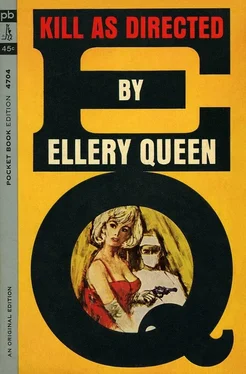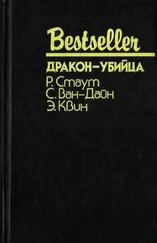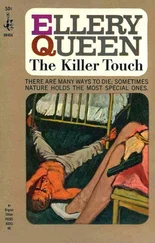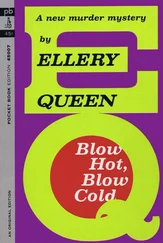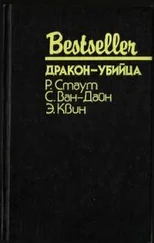The Big Dipper, he thought as he hung up. No less! Leave it to Tony Mitchell. Nothing but the best. Well, Tony could certainly afford it. Many a lawyer in town would have exchanged his entire clientele for Mr. and Mrs. Kurt Gresham.
The Big Dipper... Harry Brown rose. For the past month he had been his own chef, opening cans at home in the Village and heating their contents. It was the only way he could take Karen Gresham out; Karen was used to the best — well, to the most expensive, anyway. Tonight Tony Mitchell would pay, or Kurt Gresham if he showed up. Not that they’d let him, but he couldn’t even go through the motions of reaching for the check. A dinner for four at the Big Dipper, with cocktails and wine and adequate tips to the maître d’ and waiters, would come to almost a hundred and fifty dollars — two weeks’ salary for Dr. Harrison Brown’s yawning day-shift receptionist.
Dr. Harrison Brown shuffled about, flicking on lights. In his gleaming examining-room he opened a cabinet drawer, took out a fifth of whisky, poured himself a shot, gulped it down and, replacing bottle and glass, went into one of the two dressing rooms, the one with the full bathroom. As he stripped, as he stepped under the shower and soaped himself and turned on the needle spray and felt his body come alive, Dr. Harrison Brown thought about Anthony Mitchell, Esquire, Attorney-at-Law... thought about luck, and its quirks. For it had been chance, pure and complex, that had thrown him back into the orbit of that incandescent, hurtling personality.
Law had been Harry Brown’s father’s profession, too — slow, meticulous, painfully honest Simon Brown; old Sime Brown, never in court, a lawbook man, a brilliant brief man, everybody’s counsel on appeal; student, scholar, sickly, toward the last doddering; a man of great learning and greater wisdom and greatest principle. Attorney Simon Brown, widower, without personal ambition, deeply devoted to his only child, his son, deeply committed to encouraging that son to study medicine, to become a successful physician and so to be able to enjoy those things in life which meant so little to him. Or perhaps, as Harry Brown suspected, his father had cultivated a personal indifference toward material satisfactions because he had long ago recognized his incapability of achieving them. But for his son... It explained why he had kept himself impoverished in order to expose his son to the environment of wealth.
Daddy-o, Harry Brown thought bitterly, you played me a dirty trick. Who had said, “Wisdom is folly?” It was the stupidest thing the wise man had ever done.
It was in his father’s office — during a short vacation, while he was still in medical school — that Harry Brown had first met Tony Mitchell. Tony, seven years Harry’s senior, was already a criminal lawyer with a future; he brought his brief work to Simon Brown. He was handsome, zestful, sophisticated, quick-witted, sardonic, gay, an electric personality — all the things that Harry was not.
“Your old man’s a genius, did you know that?” Tony Mitchell had said to Harry Brown in his baritone chuckle. He was reputed to have an extraordinary courtroom voice. “And I take advantage of him, pick his brains.” For one moment young Mitchell had turned serious. “It’s unfair as hell. But... You know what’s wrong with your father, Harry? He’s too damned shy .”
It was an indictment, Simon Brown had remarked dryly later, that would never be drawn against Anthony Mitchell, Esquire.
But Harry had liked him. And, of course, envied him.
They had become friends quickly, gone out together. They made an interesting pair. Where Harry was serious, Tony was ebullient. Where Harry was inarticulate, Tony was glib. Where Harry was quiet, Tony was suave. Where Harry was awkward with women, Tony collected them like moths. They complemented each other, even physically. Harry’s big, bulky, rugged body was the perfect foil for Tony Mitchell’s quicksilver slenderness.
But then Harry had had to go back to school, and Simon Brown died, and the friendship died too, as quickly as it had been born. They drifted apart and soon lost track of each other.
Harry Brown stepped out of the shower and toweled himself viciously. Then he shaved and got into the change of clothing he kept in the bathroom closet. Against tonight’s eventuality he had stored fresh linen, black shoes and socks, a custom-tailored midnight blue suit and a solidly dark blue French silk tie. Knotting the tie before the mirror he asked himself, How do I stand? And how much longer can I keep up the front?
Not long, he knew. He was over his head in the two classic troubles: money trouble and woman trouble.
He had planned everything so conscientiously. The thirty thousand dollars had looked as impregnable a reserve as the gold in Fort Knox. He was interested in two fields, internal medicine and surgery; he had figured that two years of private practice would determine which way he would go. And choosing the “right” neighborhood for his office, the most modern equipment, the slick car, the posh clothes — these had seemed the logical means to his goal, and the devil take the cost.
The devil had taken the cost without providing the anticipated quid pro quo . After two years, nothing had come to a head. The surplus of patients implicit in a shortage of doctors had shunned Dr. Harrison Brown in droves. Patients had materialized, but in insufficient numbers. This week was not typical; he had had far better ones; but, on the average, income and outgo were ludicrously out of balance. He saw, too late, that establishing a lucrative practice was going to take far longer than he had calculated. Time meant money. And his money was running out.
And then, four months ago, a chance encounter in a bar with Anthony Mitchell had breathed life back into his hopes just as they were heaving their last gasp.
One stare, and Tony Mitchell was all over him like Old Grad at the class reunion. “Harry boy! My God, it’s Harry! How are you? Where’ve you been hiding out?”
They had double-dated for weeks, got high together, done the town — having more fun than Harry Brown could remember. Then one night, alone in Mitchell’s apartment, the lawyer had said suddenly, “All right, Harry, it’s time you took your hair down. What gives? Where’s it pressing? You put on a pretty good act, but seeing through acts is standard procedure in the courtroom, and I can spot one a mile away. You in trouble? Do something foolish? Let’s have it.”
So Harrison Brown, M.D., had told Anthony Mitchell, LL.B., all about it. From the beginning to date. His ambitions, his plans, his training, his decisions, his frustrations, his grim prospects. And he told of terror by night and by day; of the first doubts, then the growing fear, then the panic...
“Okay, enough,” Tony Mitchell said crisply. “I want to sleep on this, Harry.”
“You?” Harry had exclaimed. “What can you do?”
“Plenty. Just give me — oh, a couple of days. Can you be at my office Thursday, at noon?”
“Yes—”
“Here’s my card.”
“But, Tony—”
“Look, let me do the worrying. It’s my business to worry about peoples’ troubles. That’s what I get paid for. Only for you it’s on the house. See you Thursday.”
At noon on Thursday, Dr. Brown had presented himself at Attorney Mitchell’s surprisingly businesslike offices on Fifth Avenue. No playboy here. The office girls had clearly been picked for efficiency, not looks; the law clerks were intent on their work. “Sit down, Harry,” Tony Mitchell said in a tone Harry Brown had never heard from him before.
Harry sat down and fumbled for a cigarette, wondering what was coming.
“I’ve considered your problem,” the lawyer said, leaning back in his chair, “and I approve your plan. It’s perfectly sound for its long-range objective. It wouldn’t be for a cluck, but you’re no cluck.”
Читать дальше
